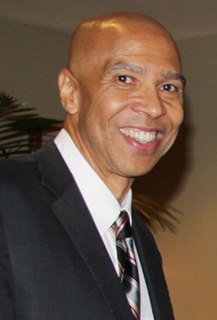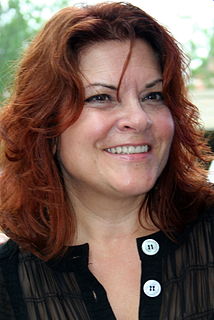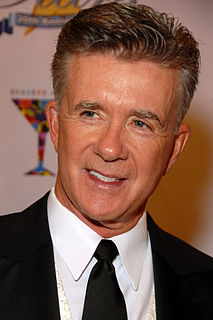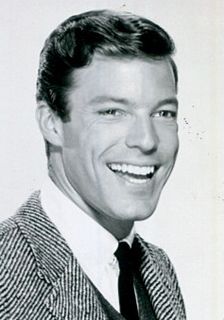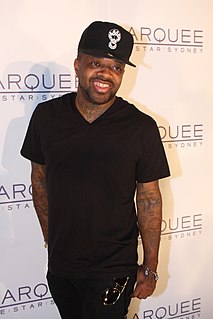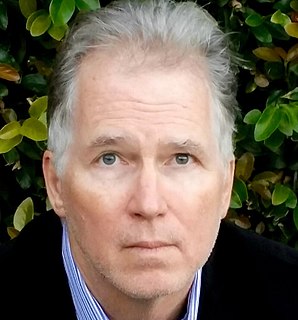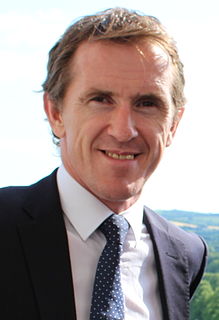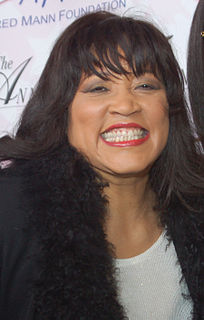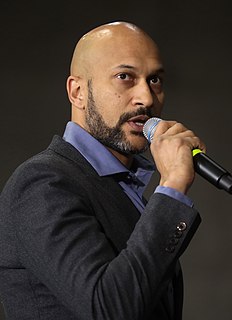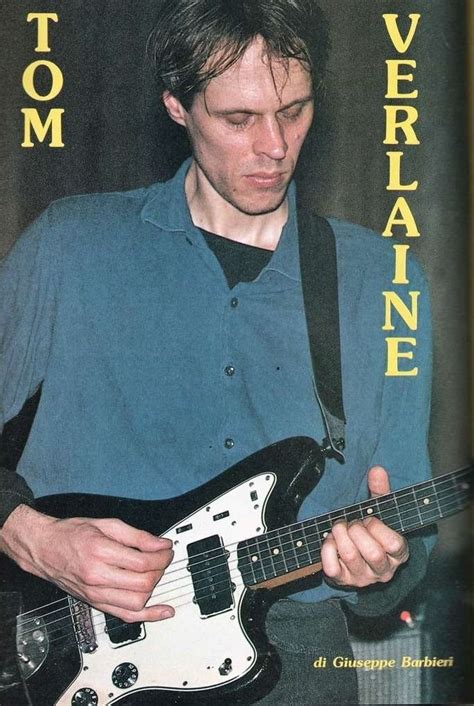Top 1136 Richard Feynman Quotes & Sayings - Page 18
Explore popular Richard Feynman quotes.
Last updated on October 17, 2024.
What a story that would make! How many men and women go through the same rivers, menaced by the same sharp clichés, the same jagged dangers that have threatened us! If the idea stands up, I thought, it would be worth uncovering the typewriter! How Richard-years-ago would have wanted to know: What happens when we set off searching for a soulmate who doesn't exist, and find her?
The emergent terrorist threats and the spread of nuclear technology and materials have made it much more likely that terrorists will get their hands on a nuclear weapon and that just changes the whole calculus. I love the quote by Rev. Richard Cizik: "If you've never changed your mind about anything, then pinch yourself, you might be dead." The world has changed and we need to start talking about this.
I was focused on building things from an early age. When I was about 3, our toilet broke, and my mother was ready to call the plumber. I told her I would fix it and asked her to get my Richard Scarry book 'How Things Work in Busytown.' Between the picture of a toilet and the text she read to me explaining how the parts worked, I fixed it.
Wildlife was the only thing we've written together with Paul Dano. It's based on a book by this author Richard Ford, who just published a memoir about his family that's really wonderful. Paul fell in love with his book, and we optioned it ourselves, and he took a first pass at writing it. He asked me for notes, and then our note session devolved into an argument really quickly.
Medieval England was a great military power with a sophisticated machinery of government, but her naval administration, at best improvised and for long periods missing altogether, pointed to a grave weakness: the lack of any reliable means of putting a force of warships at the disposal of the crown. Only Richard I and Henry V of all the kings of England can be said to have understood the problem and attempted to remedy it. It is no coincidence that they wer by far the most successful in war.
I just like to build. Don't get me wrong: I think stand-up is great, and when someone like Richard Pryor or Steve Martin does stand-up, there's nothing better in the world. But I don't want to watch a lot of stand-ups for two hours. So I can do 45 minutes of stand-up and then say, 'Can we do something else now?'
Like Richard Ellmann on James Joyce, Arnold Rampersad on Ralph Ellison is in a class of its own. His masterful and magisterial book is the most powerful and profound treatment of Ellison's undeniable artistic genius, deep personal flaws, and controversial political evolution. And he reveals an Ellison unbeknownst to all of us. From now on, all serious scholarship on Ellison must begin with Rampersad's instant and inimitable classic in literary biography.
It's the rising tide of enmity in the country, Donald Trump attacking judges, Donald Trump attacking John McCain, Senator [Richard] Blumenthal, the town halls, the riots in Berkeley. You have got the incivility on the floor of the United States Senate. You have got just a rising tide, every single story.
They fought their first action in March of 1775. Embarked on eight small ships, they sailed to the Bahamas and captured a British fort near Nassau, seizing gunpowder and supplies. Later, during the Revolutionary War, Marines fought several engagements in their distinctive green coats, such as helping George Washington to cross the Delaware River, and assisting John Paul Jones on the Bonhomme Richard to capture the British frigate Serapis during their famous sea fight.
Who are we to tell Lonzo Ball how to raise his kids. He's very entertaining and you've got to remember, guys, weren't we saying the same things about Richard Williams and Earl Woods? And how did their kids turn out? This works for the Ball family. He's a strong father figure. His kids love him and respect him, so what's everyone complaining about?
My dad [Johnny Cash] went to the [Richard] Nixon White House and refused to sing "Welfare Cadillac" (instead performing the anti-war songs "The Ballad of Ira Hayes" and "Man in Black"). He protested the Vietnam War, but he went to perform for the troops with bombs dropping all around him. He had that kind of genius: a true artist's capacity for holding two opposing thoughts at once while being large enough to encompass all realities.
The key to writing for Richard (Pryor) was to just push his buttons and then know when to push the buttons on your cassette recorder. You'd get him started, then surreptitiously start recording when he got inspired and started walking around the room and improvising in character. Then you'd get it all transcribed and take credit for it.
I am not a romantic leading man anymore so I don't need to nurture that public image anymore. I can talk about it now because I'm not afraid anymore . . . When I grew up, being gay, being sissy or anything like that, was verboten. I disliked myself intensely and feared this part of myself intensely, and had to hide it and became 'Perfect Richard, All-American Boy' as a place to hide.
The thing I'm going through is probably like the same thing that Little Richard and all these other artists go through, that I hear about them, saying, 'Oh damn, you ain't gonna give me nothing till I die,' ... I feel like I'm one of those type of great people that just going to have to wait till it's all over with for people to really sit around and talk about it.
Ever since Richard Nixon walloped George McGovern in the presidential election of 1972, political pundits have treated as a truism the proposition that liberals are out of step with the rest of the nation, and therefore all but unelectable outside the precincts of the Northeast -- give or take a college town here or a ski resort there. During the course of every presidential election for the past forty years now, Republicans have sought to wield the word liberal as if it were a six-gauge shotgun.
I would like to be mates with Richard Branson because I've hung out with him and he is just the loveliest person and obviously a very rich guy and has a lot of stuff going on, but he's actually a really, really sound person, and he's really positive and he's got a really good energy, so I'd like to hang out with him a bit more.
Baz [Luhrmann] paid me one of the greatest compliments ever. I don't know him, really, but when I first met him I was congratulating him on ROMEO + JULIET - which I think is a wonderful adaptation - and he said, "Oh, well we couldn't have done it without your RICHARD III, which was an inspiration!" I've never quite checked up on the dates to see whether or if, in fact, we did our film before he did his.
I've never translated more than one book by any author. But I'm fascinated by translators who have, like Richard Zenith, who's translated so much of Fernando Pessoa's work. I get restless for a new kind of influence. The books I've translated are books I want to learn from as a writer, to be intoxicated by. And translation is an act of writing in itself. It's an act of recreation - of a writer's cadence and tone and everything that distinguishes the voice in the book.
Darwin seems to lose out with the public primarily when his supporters force him into a mano-a-mano Thunderdome death match against the Almighty. Most people seem willing to accept Darwinism as long as they don't have to believe in nothing but Darwinism. Thus, the strident tub-thumping for absolute atheism by evolutionary biologists like Richard Dawkins, whom the new issue of Discover Magazine rightly criticizes as "Darwin's Rottweiler," is self-defeating.
We are interested in stifling the sale of this book. We believe that this can be best accomplished by refusing to be stampeded into giving it publicity...The less discussion there is concerning it the more sales resistance will be created. We therefore appeal to you to refrain from comment on this book...It is our conviction that a general compliance with this request will sound the warning to other publishing houses against engaging in this type of venture. (Signed) Richard E. Gutstadt, Director.
I listened to my first comedy album in 6th grade. It was Bill Cosby. My brother and I would play it over and over on a Fisher Price record player. A friend in high school also introduced me to Richard Pryor. I wasn't writing material back then, but I would say funny stuff. I was good at making fun of people's moms. If I knew something personal about you, it would be used against you.
Richard," Kahlan said, "what about Siddin? Weselan and Savidlin will be worried sick over him." Her green eyes gazed deep into his. She leaned closer, and whispered, "And we have unfinished business in the spirit house. I believe there is still an apple there we have yet to finish." Her arm tightened around his waist, and a little twist of a smile came to her lips. The shape of the smile caught his breath in his throat.
I've always been very chauvinistic, even in my boy-obsessed days. But I was always a gentleman. I alwaysd treated my boys like real ladies. Always escorted them properly and, in fact, I suppose if I were a lot older - like 40 or 50 - I'd be a wonderful sugar daddy to some little queen down in Kensington. I'd have a houseboy named Richard to order around.
Some sins do bear their privilege on earth,
And so doth yours: your fault was not your folly;
Needs must you lay your heart at his dispose,
Subjected tribute to commanding love,
Against whose fury and unmatched force
The aweless lion could not wage the fight
Nor keep his princely heart from Richard's hand.
I did several shows with Jimi Hendrix, that's when I got to know him better, I knew of him, I met him [when he was playing] with Little Richard... And he was kind of quiet, shy, he didn't open up too much, but there were questions as we all ask each other. You know, "how do you do this" and "why do you do that..." We had very small discussions on things like that. And he was very polite, I thought [he was] a very nice guy.
If time be of all things the most precious, wasting time must be, as Poor Richard says, “the greatest prodigality'; since, as he elsewhere tells us, 'Lost time is never found again'; and 'What we call time enough always proves little enough'. Let us then up and be doing, and doing to the purpose; so by diligence shall we do more with less perplexity.
Truth has advocates who seek understanding," Richard said. "Corrupt ideas have miserable little fanatics who attempt to enforce their beliefs through intimidation and brutality... through faith. Savage force is faith's obedient servant. Violence on an apocalyptic scale can only be born of faith because reason, by its very nature, disarms senseless cruelty. Only faith thinks to justify it.
After my early days of being a passionate young Elvis fan, Chuck Berry, Little Richard, etc. I got interested in Ray Charles and Ella Fitzgerald. Then I got turned on to the blues. I realized how important it was to our music in England at the time. Everyone was into the blues. Then you start looking at the different kinds of blues, and you follow the journey backwards from Chicago to earlier times back down to the Delta to the Memphis Blues.
Congressman [Richard ] Icord headed a House on American activities committee. It was called the House Internal Security Committee. And he put out a report, and he named a number of very destructive people who lectured at colleges and left arson in their wake and did other terrible things. And he mentioned me and he ascribed to me three organizations to which I'd never belonged, and I decided I would do something about this.
I changed my major to English and I went off to Fort Collins. And within the first couple of weeks, I noticed that they were having auditions for a production in their theater department. They were going to stage Jean Anouilh's Becket, which was a film I loved, with Peter O'Toole and Richard Burton. So I went down and auditioned, and I got the role. I got the Peter O'Toole part. So here I was, a 19-year-old playing King Henry.
I admire leaders in science, people who really figure things out like Richard Fineman or people who work on vaccines, tons of people working on [the] HIV vaccine. There's leaders in business, people like Warren Buffett, who've got a certain approach they take that are pretty amazing. There [are] product innovators like Steve Jobs was, where he gets behind a concept and does a fantastic job.
There are a lot of ways to talk about the life of a photograph. You can talk about the afterlife of a photograph, and in the end I talk about that, with the Richard Prince picture. But mainly, what I dedicated the book to being about was how photographs begin their life, and where they begin it. And they begin it with the photographer's imagination and instinct and experience.
Richard Nixon has never been one of my favorite people anyway. For years I've regarded his existence as a monument to all the rancid genes and broken chromosomes that corrupt the possibilities of the American Dream; he was a foul caricature of himself, a man with no soul, no inner convictions, with the integrity of a hyena and the style of a poison toad. The Nixon I remembered was absolutely humorless; I couldn't imagine him laughing at anything except maybe a paraplegic who wanted to vote Democratic but couldn't quite reach the lever on the voting machine.
For the last 250 years or so, secularists have waited patiently for the fulfilment of their prediction that religion would die out in the next generation or two. But religious people have been singularly uncooperative, and new strategies have developed for controlling this blight on human progress. If religion won't "wither away" as philosopher Richard Rorty has wished, then perhaps it can be privatized and thereby removed from influence on public life‚ - sort of like localizing an outbreak of the plague.
The Republican nominee-to-be, of course, is also a young man. But his approach is as old as McKinley. His party is the party of the past. His speeches are generalities from Poor Richard's Almanac. Their platform, made up of left-over Democratic planks, has the courage of our old convictions. Their pledge is a pledge to the status quo-and today there can be no status quo.
Francis Coppola was very generous. We got paid a lot of money and he saw us every day, took us out every night. It was just a lot. Richard Gere was an absolute gentleman. Gregory Hines. You know, I worked with some giants and they were just so smooth. And it was the '80s. That's when people had a lot of money and it was okay to to hang out and be crazy.
Commemoration of Richard Meux Benson, Founder of the Society of St John the Evangelist, 1915 Our critical day is not the very day of our death, but the whole course of our life; I thank him, that prays for me when my bell tolls; but I thank him much more, that catechizes me, or preaches to me, or instructs me how to live.
[Kurt] Vonnegut once said, if you ever want to know who somebody is... Like you look at Richard Nixon, or Adolf Hitler, or Ralph Nader, or anybody who seems like a difficult person to understand, and is therefore not part of the pattern of human behavior. Think about who they were in high school, and they will explain themselves to you. So we got a hold of, like, 50 high-school yearbooks, including my mom's from 1925 or something, and we discovered that they're all the same.
The president, apparently, was so totally unaware of where his foreign policy was that he had to appoint a distinguished commission to help him locate it, and when the commissioners called him in to testify, he told them, essentially, that he couldn't remember what it looked like. Now, if Richard Nixon had claimed something like that you would at least have had the comfort of knowing he was lying. You could trust Nixon that way. But with this president, you have this nagging feeling that he's telling the truth.
The book Dynamic Programming by Richard Bellman is an important, pioneering work in which a group of problems is collected together at the end of some chapters under the heading "Exercises and Research Problems," with extremely trivial questions appearing in the midst of deep, unsolved problems. It is rumored that someone once asked Dr. Bellman how to tell the exercises apart from the research problems, and he replied: "If you can solve it, it is an exercise; otherwise it's a research problem."
Years ago I met Richard Burton in Port Talbot, my home town, and afterwards he passed in his car with his wife, and I thought, 'I want to get out and become like him'. Not because of Wales, because I love Wales, but because I was so limited as a child at school and so bereft and lonely, and I thought becoming an actor would do that.
If you think about black art, all black art, whether it's Invisible Man or whether it's James Baldwin, Langston Hughes, Zora Hurston, or Richard Wright, they all deal with elements of identity and trying to humanize our experience and our struggle in the world where people have been indifferent to who we are and what we are. It's basically just saying that our lives have meaning.
I live in a country where, at least by my sense of arithmetic and justice, Al Gore should have been president, not George W. Bush. To this day, John Kerry probably thinks he won Ohio in 2004 because he had suspicions about the vote in Ohio. And, by the way, Richard Nixon had suspicions in 1960 about the vote in Chicago when he lost to JFK.
Amazingly, 85 percent of prescribed standard medical treatments across the board lack scientific validation, according to the New York Times. Richard Smith, editor of the British Medical Journal, suggests that this is partly because only one percent of the articles in medical journals are scientifically sound, and partly because many treatments have never been assessed at all.
Major Richard Bong was an example of the tragic and terrible price we must pay to maintain principles of human rights, of greater value than life itself. This gallant Air Force hero will be remembered because he made his final contribution to aviation in the dangerous role of test pilot of an untried experimental plane, a deed that places him among the stout-hearted pioneers who gave their lives in the conquest of sky and space.
I was born in the same town as Richard Burton, the actor, and I saw him, he used to come - he and his wife drove by in the car in my father's shop and Burton would come home from Hollywood and ask him for his autograph, and I thought, I want to be like him. And that's all I said to myself, I want to be like that. I want to get out of this environment of my own empty mind.
I'll never forget John Heard doing Shakespeare In The Park with Raul Julia and Richard Dreyfuss. It was 30 years ago, I guess. It was Othello, and John Heard played Cassio, and while everyone else was "Acting!" Heard came on talking normal, and everyone in the audience was leaning in to follow him. I wasn't doing that in Bus Stop. I think in that performance, I was putting it out a little too much.
We couldn't keep ten million refugees on our soil; we couldn't tolerate such an unstable situation for who knows how long. That influx of refugees wouldn't have stopped - on the contrary. It would have gone on and on and on, until there would have been an explosion. We were no longer able to control the arrival of those people, in our own interest we had to stop it! That's what I said to Mr.[Richard] Nixon, to all the other leaders I visited in an attempt to avert the war.
The 1970s was probably the most exciting decade to be a teenager, from discovering Little Richard at the end of the 1960s to glam rock to punk rock to electro music. So much happened in that 10-year span. There were so many musical revolutions. Some were happening at the same time. You had disco going on behind punk. You had Michael Jackson. You had the Sex Pistols.
Designer's derive their rewards from 'inner standards of excellence, from the intrinsic satisfaction of their tasks. They are committed to the task, not the job. To their standards, not their boss.' So whereas most people divide their lives between time spent earning money and time spent spending it, designers generally lead a seamless existence in which work and play are synonymous. As Milanese designer Richard Sapper put it: "I never work-all the time."
The presidents varied in the degree to which they cited the founders. Some, like JFK, LBJ, [Richard] Nixon, and [Bill] Clinton, cited them somewhat frequently, in the range of 100 to 200 times, though, regrettably, not in a thematic or notably profound or even interesting way. Others, like Gerald Ford and Jimmy Carter, cited them rarely.
Like a child exploring the attic of an old house on a rainy day, discovering a trunk full of treasure and then calling all his brothers and sisters to share the find, Richard J. 'Foster has 'found' the spiritual disciplines that the modern world has stored away and forgot, and has excitedly called us to celebrate them. For they are, as he shows us, the instruments of joy, the way into mature Christian spirituality and abundant life.
I have a real soft spot for flying saucer songs and Frenkenstein songs. When I was a kid the first record I ever really liked was called "The Mummy", and the flip-side was called "The Beat Generation" which Richard Hell later re-wrote as "The Blank Generation". I thought it was the greatest thing I had ever heard. I didn't like Elvis much then, but I was very young. When I was a kid I used to play that monster all the time!
Cara waggled a hand over the two of them. "It works better with your clothes off." Richard frowned. His voice came as a hoarse croak. "What?" She seemed mystified by the question. "I believe you will find such things work better without clothes." She put her hands to her hips. "I thought you would know at least that much.
Better known as the Secret of the Golden Flower, this is a famous neidan text that the Western world came to know through Richard Wilhelm's 1929 translation. The Chinese text used by Wilhelm was edited by Zhanran Huizhen zi in 1921. Besides this, at least five more versions are available, all of which date to the late Qing dynasty (1644-1911) and are ascribed to Lu Dongbin, who revealed them through spirit writing.









